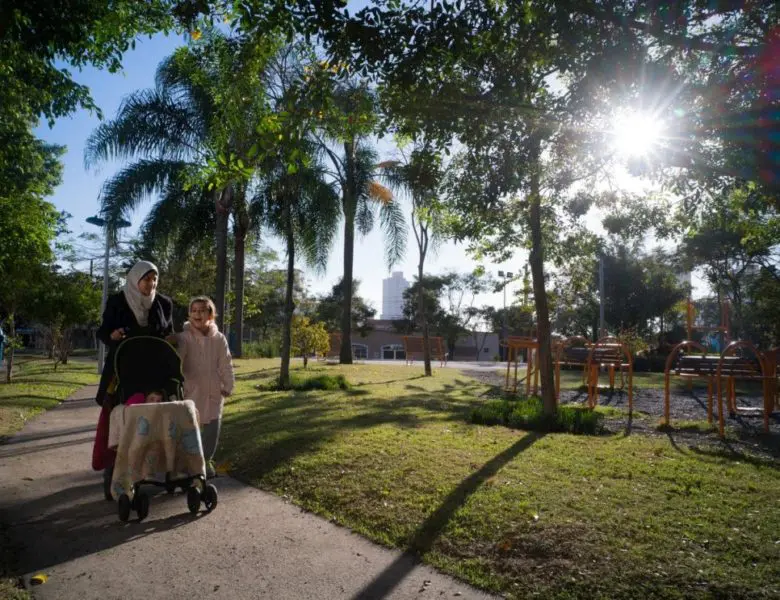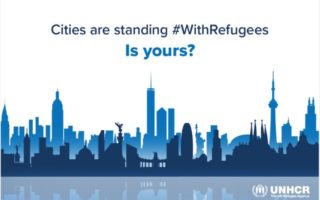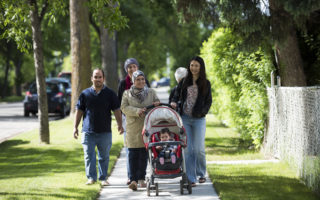
Salsabil Matouk, 32, was born in a small town in Syria, but now lives with her family in Brazil’s biggest city, São Paulo. © UNHCR/Érico Hiller
With more than 60 per cent of the world’s refugees and 80 per cent of internally displaced people sheltering in cities around the world , UNHCR, the UN Refugee Agency, salutes the great efforts many urban centers have taken in protecting those forced to flee, amid the COVID-19 pandemic.
Whether ensuring the inclusion of refugees and displaced people in COVID-19 prevention and response activities, providing shelter, health care, food and cash assistance, or halting forced evictions through moratoriums, a number of cities have been at the forefront in helping those forcibly displaced to cope through the pandemic.
On World Cities Day today, UNHCR is urging more cities to follow suit.
“In the face of the COVID-19 pandemic, refugees, displaced and stateless people are often at heightened risk. They face difficulties in accessing health care, essential services and social safety nets. They are sinking into poverty, hardship and debt, making them even more vulnerable to exploitation and abuse,” said UNHCR’s Assistant High Commissioner for Protection, Gillian Triggs.
“We know solutions start at the local level and this is why cities and local communities are uniquely placed to protect and support displaced people. The Global Compact on Refugees recognizes the crucial role mayors and local authorities play as first responders, a role even more critical now when we are all faced with the threat of the coronavirus pandemic”.
Best practices taken by cities to protect refugees and those displaced vary. Among many examples, São Paulo launched its first Municipal Plan of Public Policies for Refugees and Migrants to amplify and ensure their access to essential services.
From Amman, Jordan, to Douala, Cameroon’s second biggest city, a number of cities ensured the inclusion of refugees and those displaced in their public health response and activities aimed to curb the spread of the pandemic. Istanbul Metropolitan Municipality, together with civil society, ensured support to meet the basic needs of vulnerable refugees during the pandemic.
The city of Berlin launched a podcast series in 13 languages to keep refugees and asylum-seekers informed about the coronavirus situation. Montreal converted public transport buses into mobile clinics to increase COVID-19 screenings in neighborhoods that host refugees and asylum seekers.
With refugees and locals hard hit by the impact of the pandemic, South Africa’s eThekwini municipality also redoubled efforts to improve social cohesion, setting up a platform to engage refugees and their host communities.
Cities are bustling centers of trade, industry and culture and they are also embracing the skills and contributions refugees want to give back to their hosts.
From New Jersey, Lima to Esfahan and beyond, refugee doctors and public health professionals are taking part in the COVID-19 response, joining countless other first responders shouldering the brunt of the pandemic.
Since the launch of UNHCR’s Cities #WithRefugees initiative in 2018, more than 250 cities across some 50 countries have added their support to a global statement of welcome and inclusiveness for families forced to flee violence and persecution. UNHCR calls on more to come forward and join the initiaitive by signing the solidarity statement here.
ENDS
For more information, please contact:
- In Geneva, Shabia Mantoo, mantoo@unhcr.org, +41 79 337 76 50
Originally published by UNHCR on 31 October 2020.





